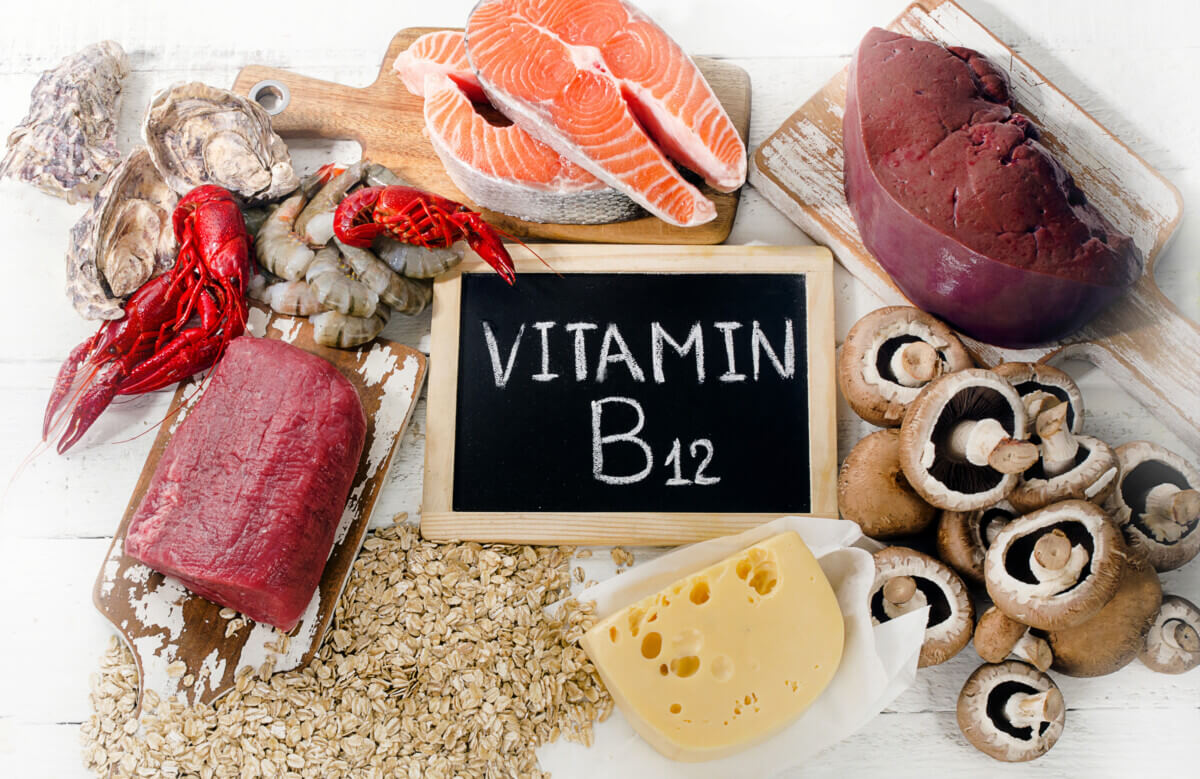This B vitamin has a strong pancreatic defense


(© natali_mis – stock.adobe.com)
CHENGDU, China From the lab to the dinner table, a new study offers hope for the risk of acute pancreatitis. The secret ingredient? Vitamin B12nutrients that can do more than just keep our blood and arteries healthy.
Acute pancreatitis, a sudden inflammation of the pancreas, is a painful and potentially life-threatening condition that affects thousands of people every year. It can lead to serious complications and often requires hospitalization. Until now, treatment methods are limited, focusing more on supportive care than on solving the cause of inflammation.
Add vitamin B12, a nutrient found in foods such as fish, meat, eggs and dairy products. The study, led by researchers at Sichuan University in China, suggests that having high levels of vitamin B12 in your blood can reduce the risk of developing acute pancreatitis. But how did they come to this conclusion?
The research team used an ingenious method called Mendelian randomization. This approach leverages genetic information to narrow down causal relationships between factors such as vitamin levels and disease. By analyzing data from a number of population studies, including the UK Biobank and the FinnGen consortium, researchers found that people with a genetic variant associated with high levels of vitamin B12 had a lower risk of acute pancreatitis.
The scientists did not stop there. To further investigate the potential protective effects of vitamin B12, they turned to mouse models. They created mice that lack a specific gene (CD320) that is important for cellular uptake of vitamin B12. When these vitamin B12-deficient mice were given substances that commonly cause pancreatitis, they developed more severe inflammation compared to normal mice.


The project was deepened when researchers treated normal mice with vitamin B12 before or after pancreatitis. Surprisingly, vitamin B12 treatment significantly reduced pancreatic damage and inflammation. It was as if vitamin B12 had thrown a protective blanket over the pancreas, protecting it from harm.
So, how does vitamin B12 work in the pancreas? Studies suggest that it all comes down to energy. Vitamin B12 plays an important role in the production of cellular energy, helping to produce a molecule called ATP – the energy currency of cells. Researchers have found that pancreatic cells from mice treated with vitamin B12 have higher levels of ATP. This extra energy can help pancreatic cells withstand stress and avoid the type of damage that leads to acute pancreatitis.
If further studies confirm these findings in humans, vitamin B12 supplementation may become a simple and cost-effective way to prevent or treat acute pancreatitis. This can be especially important for people who are at high risk of this condition, such as those with gallstones or alcohol abuse.
However, before you rush to the pharmacy to stock up on vitamin B12 supplements, it’s important to note that some research is needed. The study, while promising, was done primarily in mice, and human trials are needed to confirm the results in humans. In addition, the optimal dose and timing of vitamin B12 supplementation for the prevention or treatment of pancreatitis still needs to be determined.
However, this study opens an exciting new avenue for the research and treatment of pancreatitis.
“These exciting new findings add to the growing body of evidence that vitamin B12 can reduce the severity of acute pancreatitis by increasing ATP levels in the pancreatic ducts, providing new insights into treatment strategies for the disease.” This one,” says the main author Prof. Dr. Xianming Mo from the Western China Center of Excellence for Pancreatitis in a statement. “This study lays a solid foundation for the future use of vitamin B12 in the management of acute pancreatitis.”
Summary Paper
Method
The researchers used two methods in this study. First, they used Mendelian randomization, a statistical method that uses genetic variants as a natural experiment to investigate causal relationships. They analyzed genetic data from several population studies to see if genes associated with high levels of vitamin B12 were associated with a lower risk of acute pancreatitis.
Second, they did experiments on mice. They created genetically modified mice lacking the CD320 gene, which is important for vitamin B12 absorption, and compared the likelihood of developing pancreatitis with normal mice. They also treated mice with vitamin B12 before or after pancreatitis to see if it had any protective effects.
Key Results
A Mendelian randomization analysis showed that genetic variants associated with high levels of vitamin B12 were associated with a low risk of acute pancreatitis in humans. In mouse experiments, mice lacking the CD320 gene (and therefore deficient in vitamin B12) developed more severe pancreatitis when exposed to pancreatitis-causing agents. Treating normal mice with vitamin B12 before or after inducing pancreatitis significantly reduced pancreatic damage and inflammation. The researchers also found that vitamin B12 treatment increased ATP levels in pancreatic cells.
Learning Limits
The main limitation of this study is that although it provides strong evidence in mice, its findings in humans are based on genetic associations rather than direct intervention studies. The Mendelian randomization method, although powerful, relies on certain assumptions that may not always be true. Furthermore, rodent models, while valuable, may not accurately mimic human pancreatitis. Human clinical trials are needed to confirm these findings and determine optimal dosing strategies.
Discussions & Takeaways
This study suggests that vitamin B12 may play a protective role against acute pancreatitis, possibly by increasing the cellular capacity of pancreatic cells. If confirmed in human studies, this could lead to new prevention and treatment strategies for acute pancreatitis. Studies also highlight the importance of maintaining adequate levels of vitamin B12, especially in people at high risk of pancreatitis. However, the researchers caution that more research is needed before clinical recommendations can be made.
Tips and Tricks
This study was supported by various grants from Chinese institutions, including the National Nature Science Foundation of China, the Natural Science Foundation of Sichuan Province, and the Post-Doctoral Research Project of Sichuan University. The authors declared no conflicts of interest.
#vitamin #strong #pancreatic #defense

